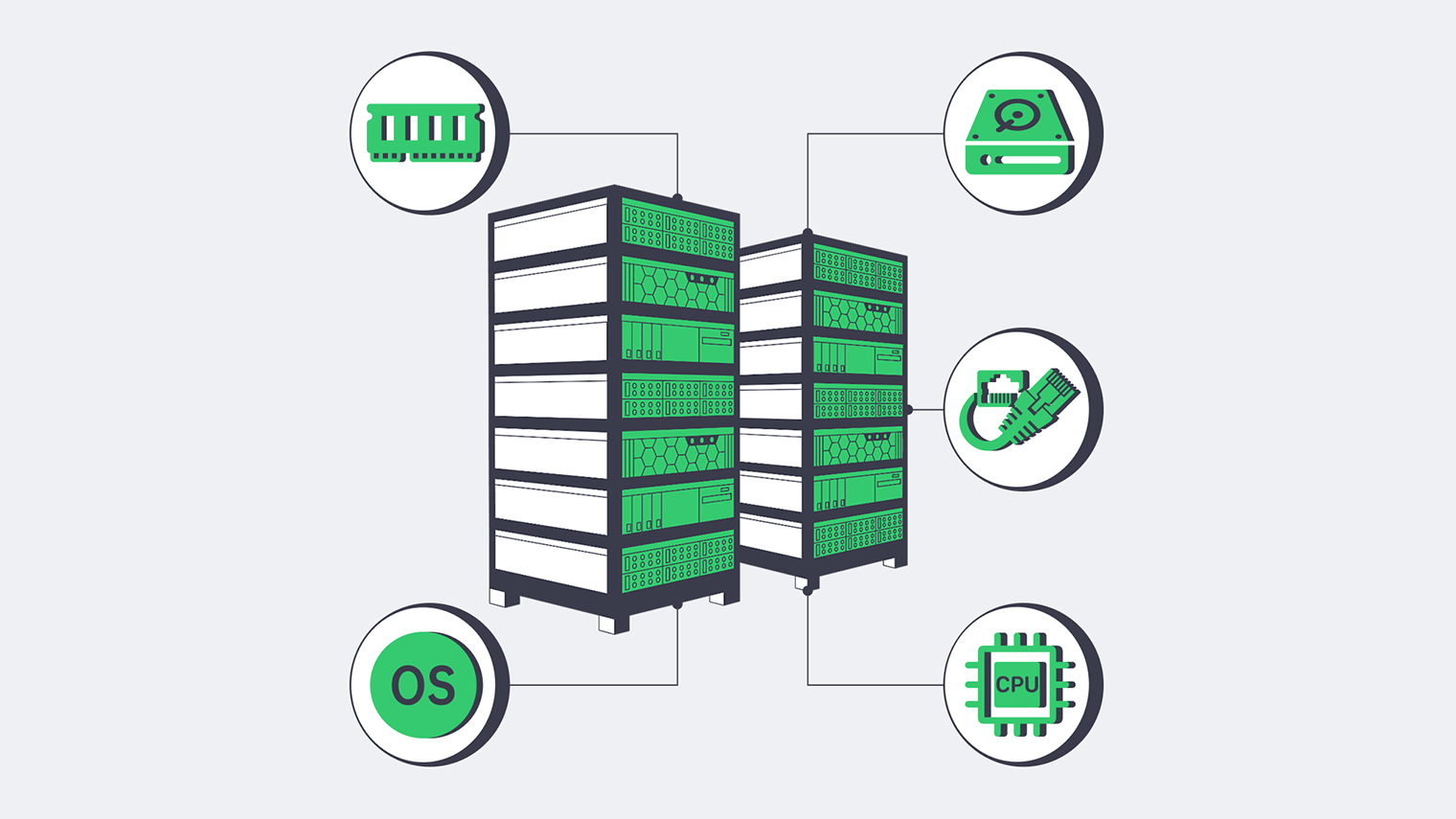Blog

Dedicated Servers for Data Backups
Backing up your data is no longer optional. No matter how large or small a business is, having a reliable strategy to protect critical information is essential. Why? Because the stakes are high. Ransomware incidents have surged in recent years, and a single attack can grind your operations to a halt. That’s why dedicated servers are so valuable—they let you take complete command of your backup process. In contrast to shared environments, they’re faster, more dependable, and far more secure.
Drawbacks of Non-Dedicated Backup Solutions for Businesses
Without a dedicated backup infrastructure, businesses often rely on shared solutions—such as VPS or on-site storage (e.g., NAS devices, RAID arrays, or local servers)—that carry notable risks.
Security Vulnerabilities
In partial infrastructure environments, your backups sit alongside other users’ data, exposing your organization to vulnerabilities stemming from their potential security missteps. Meanwhile, on-site storage systems may not offer sufficient protection against external attacks, physical damage, or theft, further endangering critical information.
The absence of dedicated hardware also limits your ability to implement strict access controls, custom firewalls, and comprehensive encryption. A single misconfiguration by another user can create security loopholes that jeopardize your data, making it far more challenging to uphold the high security standards demanded by modern businesses.
Unpredictable Performance
Resource contention is another major hurdle. In a shared infrastructure, multiple users compete for CPU power, memory, and storage bandwidth, leading to unpredictable performance—particularly during peak periods. As a result, backup jobs may take longer than planned or fail to complete on time, putting crucial restore points at risk.
Meeting RPOs (Recovery Point Objectives) and RTOs (Recovery Time Objectives) becomes increasingly difficult when backup operations are slowed by fluctuating network speeds and storage constraints. In the event of a disaster, these unstable conditions can result in extended downtime, undermining productivity, customer satisfaction, and your organization’s reputation.
Limited Customization and Compliance Hurdles
Many shared solutions impose strict constraints on software installations, server configurations, and advanced security features. This lack of flexibility prevents you from customizing encryption, firewalls, or specialized backup applications to meet specific requirements, often forcing organizations to settle for less robust solutions.
Compliance obligations can complicate matters if the hosting provider won’t let you explicitly specify the data center’s geo location. For businesses under data sovereignty regulations, this limitation can lead to non-compliance, risking legal consequences. With limited options to ensure data residency, aligning infrastructure with regulatory expectations becomes more difficult.
Benefits of Using Dedicated Backup Servers
Robust Security
Opting for dedicated servers grants you unparalleled control over your backup environment. You can implement specialized firewalls, end-to-end encryption, and other defense mechanisms tailored to the sensitivity of your data. This level of customization significantly lowers the risk of unauthorized access, data breaches, or other security incidents that could harm your operations.
Another advantage of dedicated hosting is the ability to maintain redundant storage solutions, such as RAID configurations, for extra data protection. This ensures that backups remain intact even if hardware components fail. With full oversight of the server’s security framework, you can create a multi-layered defense strategy designed around your specific threat landscape, giving you comprehensive peace of mind.
Performance and Scalability
Dedicated servers eliminate resource-sharing bottlenecks by reserving computing power, memory, and storage capacity solely for your backup processes. Predictable performance allows you to plan and execute backups within set windows, making it easier to stay on schedule and maintain the level of data integrity your business demands.
Because the server’s resources belong exclusively to you, scaling is straightforward as data volumes increase or business objectives evolve. You can expand your storage capacity or upgrade CPU and RAM without shifting to a completely different hosting solution. This streamlined approach to growth ensures that your backup infrastructure can adapt quickly to changing needs, all while maintaining consistent reliability.
Compliance and Customization
Dedicated servers empower you to create an environment specifically tailored to meet industry standards, security protocols, and evolving data protection requirements. This control is particularly vital for companies operating under strict regulations that demand strong encryption, thorough logging, or rigorous auditing procedures. Since you oversee every layer of the server setup, you can ensure no compromises are made in the pursuit of full regulatory compliance.
Additionally, you can often select from multiple data center locations worldwide when using dedicated servers. This freedom of choice helps address data sovereignty laws that mandate local storage or prohibit certain cross-border data transfers. The result is a highly secure backup environment that meets all functional needs while satisfying legal and regulatory commitments.
Dedicated Backup Server Solution

Every organization grapples with unique challenges—massive data throughput, regulatory complexities, uptime demands. A hosting provider that can adapt to these needs is vital.
Melbicom offers an infrastructure designed for flexibility. With 900+ servers ready for activation within two hours, global coverage across 15 data centers, and extras like guaranteed bandwidth and DDoS protection, you have a strong foundation to keep backups running smoothly.
| Component | Recommendation |
|---|---|
| CPU | Multi-core processors like Intel Xeon for efficient handling of backup workloads |
| RAM | Minimum 64 GB to ensure smooth data transfer and handle large datasets effectively |
| Storage | Use NVMe SSDs for fast read/write speeds, or HDDs with RAID for cost-effective redundancy |
| Bandwidth | High bandwidth (1 Gbps or more) to support timely backups without network congestion |
Best Backup Dedicated Server Solutions
Dedicated servers give you a rock-solid, secure, and scalable foundation for managing your data backups. They also let you shape your environment exactly how you need it. Whether you’re storing huge datasets or building complex redundancy systems, you’ve got the tools to create a solution that fits your business perfectly.
Not using dedicated servers for your backups yet? Melbicom is here to back you up with top-tier dedicated server solutions from the most trusted vendors in the industry.